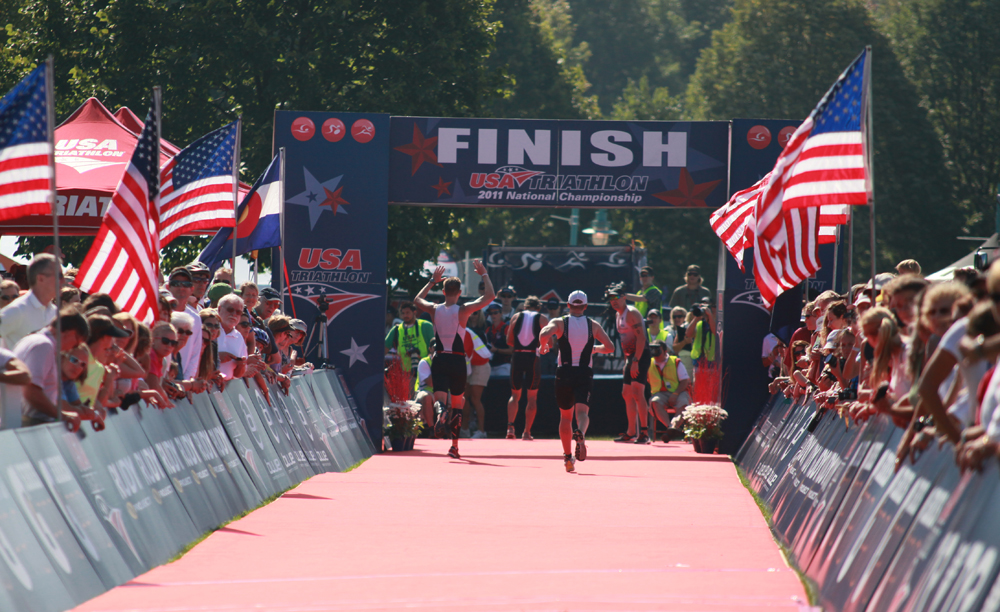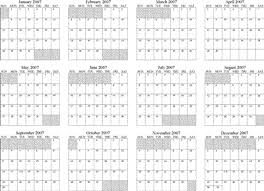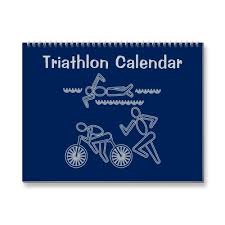
December is a time when many athletes plan their seasons for the upcoming year. They pick which races they want to do – short course, long course and sometimes destination races. The one thing typically forgotten about is the nutrition part of the race.
A client wrote to me:
“I don’t think many realize when racing triathlon, that there are actually 4 events:
Swim, Bike, run and the most important NUTRITION!!”
But most athletes I have worked with tend to change the aspects of training first in hopes that the race season will improve. Well, it may. But without taking a look at your nutrition, all the training in the world is not going to get you to the finish line quickly if you’re  puking your guts out or walking the marathon/run portion of a triathlon.
puking your guts out or walking the marathon/run portion of a triathlon.
I have a package that works well with most athletes – the Race Day Nutrition Package. It consists of 4 sessions, usually 2 weeks apart.
It helps to build the foundation of your nutrition goals so you become a fat burning machine, not a carb junkie looking for the next fix. I am not saying that carbohydrates are bad or good. But we need to keep our nutrients in balance. If you eat mostly carbohydrates, like bagel for breakfast, you spike the blood sugar and set yourself up to be craving more carbs and sugar the rest of the day. This set you up for burning sugar, even if you are in fat burning mode while exercising. You will have trouble losing weight and the spare tire around your middle.
Why is any of this important? Because you have to train your nutrition and see how the body adapts. It is not an overnight process. And it takes time to pay attention to what signs your body is giving you. It takes time to understand what language your body speaks to you! I am the translator many times with my clients. If you want your body to be a fat  burning machine so you can be lean for your race season, you have to plan out the off-season to incorporate the diet.
burning machine so you can be lean for your race season, you have to plan out the off-season to incorporate the diet.
Your sports nutrition planning comes in 4 basic phases: 1- fat-burning/ transitioning into healthier eating phase; 2- adapting to increase in training phase; 3- practicing race day nutrition in training; and 4- finalizing the race day nutrition plan.
The off -season may be the best time to work on fat loss (not just weight loss). Pick a 2-6 month window before your racing season begins to schedule time with a nutrition coach to help you with your body composition goals. This will help address the blood sugar management issues you may be experiencing that keeps you feeling heavier than you want, and hungry all the time.

Next is to adapt the eating to the increase in training. Usually this is 2-4 months before your event. This sports nutrition planning consists of modifying food options for recovery, further balancing blood sugar for fat loss and working on fueling while training. This fueling can include real food options to test, or optimizing your choice of pre-made mixes. Just remember, you need time to make the adjustments.
Then 1-3 months before your event, you want to work on race day nutrition and practice it in training. If you have trouble with walking on the run, GI distress, IBS or just feeling too tired to finish, you need to work on nutrition. These are usually not training related or being under prepared with training. If you are a carb-burner, you will need more sugar when you train and race. Increase the sugar, increase the likelihood you will have GI distress. Yes, you can train your body to take in more, but your overall nutrition might need adjustment along with race day nutrition so you can minimize the risks of GI distress. This is where we further optimize recovery meals and timing, as well as work on re-hydrating after workouts so the next sessions are stellar rather than punky.
The last phase of sports nutrition planning is race day nutrition. This is usually 2-4 weeks before your event. It will help you optimize what you will eat the week and days before your event, what to eat the morning of your race, and what you will use for fueling and hydration. You will learn what your signs of dehydration are and how to avoid them. You will know exactly what to do race day as you have worked thru the issues in training so there is no guess work left.
If you want a better race season, you need to plan your sports nutrition, too!
Use Winter months to convert from sugar to fat burning. Spring to work on more fat burning and adjusting intake to increased training loads. The spring into summer is all about race day nutrition and training the  race day plan until it is dialed in with recovery meals during the week, electrolyte adjustments for heat and humidity and finding out what works best for the pre-race dinner, breakfast and during racing fuel. Don’t just plan your races, do your sports nutrition planning, too! And please don’t wait til May when you are racing in June!
race day plan until it is dialed in with recovery meals during the week, electrolyte adjustments for heat and humidity and finding out what works best for the pre-race dinner, breakfast and during racing fuel. Don’t just plan your races, do your sports nutrition planning, too! And please don’t wait til May when you are racing in June!